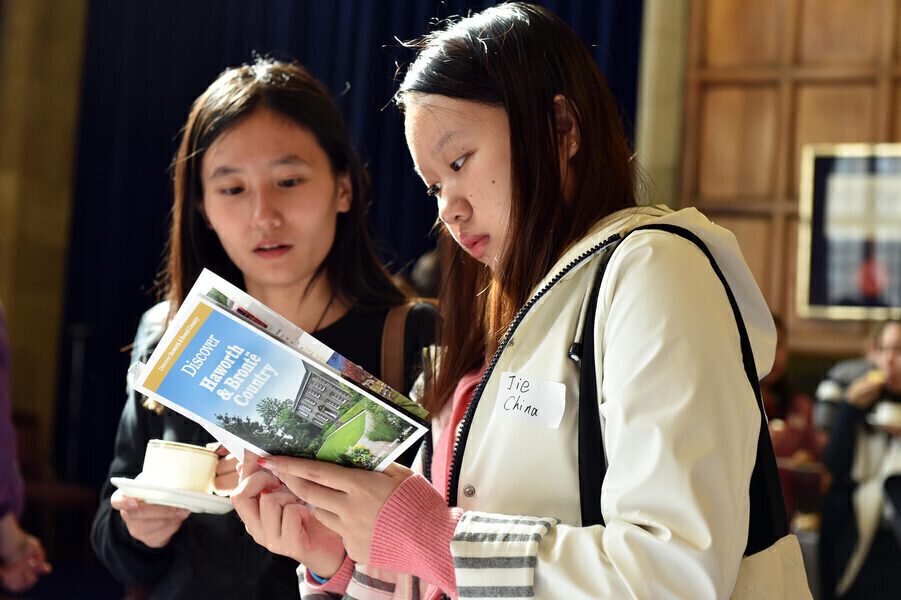A guide to UK private schools for non-British families
For many international families who choose a British private school education for their children, this represents a gateway to academic excellence, cultural experience, lifelong connections and a myriad of opportunities. This guide offers a clear and concise introduction to UK private schools for non-British families who are considering this educational path.
Why international families choose UK private schools
British private schools are held in high regard by families worldwide. These schools combine centuries-old traditions with modern, global outlooks, while also preparing pupils for life at some of the world’s leading universities and institutions.
Common reasons why international families choose UK private schools include:
- World-class academic standards and university preparation
- English-language immersion in a supportive environment
- Prestigious alumni networks and lifelong professional connections
- Excellent boarding provision with pastoral care
- Cultural experience and independence for young people living away from home
UK private schools are also renowned for developing well-rounded individuals. Many offer outstanding co-curricular programmes in music, sport, art, and leadership in a setting where independence and curiosity are encouraged.
The global presence within UK private schools
The ISC Census and Annual Report 2025 demonstrates the breadth of international pupils receiving an independent education in the UK:
- 61,750 non-British pupils are enrolled at ISC member schools, making up 11.3% of the total student body
- Of these, 25,526 pupils have both parents living overseas, accounting for 4.7% of all pupils at ISC member schools. Pupils from mainland China (6,258) and Hong Kong (4,479) form the largest country groups.
- 36,224 pupils have one or both parents living in the UK, making up 6.6% of all ISC member school pupils. Of these, 11,767 pupils are from the European Economic Area (EEA), equivalent to 2.2% of all ISC pupils.
When do international pupils typically enrol at UK Schools?
Families whose children live overseas tend to enrol their children later, particularly in senior or sixth form years.
Entry Points (figures taken from ISC Census and Annual Report 2025):
- 54% of pupils whose parents live overseas join an independent school in either Year 12 or Year 13 (Sixth Form)
- 44% of pupils whose parents are overseas join in Years 7–11 (Senior School)
- Just 3% join in Year 6 (Junior School)
Generally, international pupils are more likely to be full boarders, with 93% attending boarding school. This reflects both the practical needs of overseas pupils and their desire for an immersive educational experience.
Higher fees for international pupils
It is important to recognise that international pupil fees are typically higher than those charged to UK-based families. The reasons for this are:
- The additional resources needed to support these students (e.g. language support, pastoral care, visa compliance)
- The high cost of guardianship, accommodation, and administrative overhead
- The financial risk associated with currency fluctuations
For a more complete overview of UK private school fees, including boarding costs and regional comparisons, read: How much do UK private schools cost in 2025/26? Fees, VAT impact & regional comparison
Admissions process for international pupils
Applying to a UK private school from overseas involves several key steps. As well as academic transcripts and references, international applicants are often required to sit further assessments.
Common steps include:
- Completion of a school application form
- Submission of recent academic reports, translated if necessary
- A school reference from a current headteacher or principal
- Entrance exams such as the UKiset, school-specific papers, or ISEB Pre-Tests
- Interview, often conducted via Zoom or in person during a school visit
- English language proficiency evidence (e.g. IELTS, TOEFL)
For more detailed admissions guidance, read: How to Apply to UK Private Schools: Step-by-Step Admissions Guide.
Why it’s worth it: the value of a UK private school education
A British private education delivers more than an academic pathway; it is a personal and social investment that champions independence and confidence, while also providing pupils with a global perspective.
Benefits include:
- Academic excellence and university success
- Small class sizes and low pupil-to-teacher ratios
- Leadership and extracurricular opportunities
- Outstanding facilities and dedicated wellbeing support
- Access to a lifelong international alumni network
Read about the benefits of a UK private school: Benefits of a UK Private School Education: Academic Results, Class Sizes & Co-Curricular Activities.
FAQs: UK private schools for international families
Is English fluency required for admission?
Most schools require a certain level of English, particularly for entry at senior or sixth form level. Support is often available through EAL (English as an Additional Language) programmes.
Can we apply if we’re relocating to the UK?
Yes, many families apply during an international move. In such cases, your child may apply as a day pupil or a boarding pupil.
How early should we apply?
Apply at least 12-18 months in advance of the start date, especially for competitive schools or sixth-form entry.
Can my child board full-time?
Yes, and for international pupils with both parents overseas, boarding is a popular choice. Some schools also provide guardian support and airport transfers.
What are the most popular entry points?
Common entry years for international pupils include Year 7, Year 9, and especially Year 12 (Sixth Form).
Final Thoughts
The United Kingdom remains one of the most sought-after destinations for families seeking a world-class education for their children, and its private schools offer lifelong value to pupils who attend them.
Use School Scout to explore UK private schools that are suitable for international pupils. Filter by region, entry point, fee level and boarding options — and find the right fit for your child, wherever your family is based.
